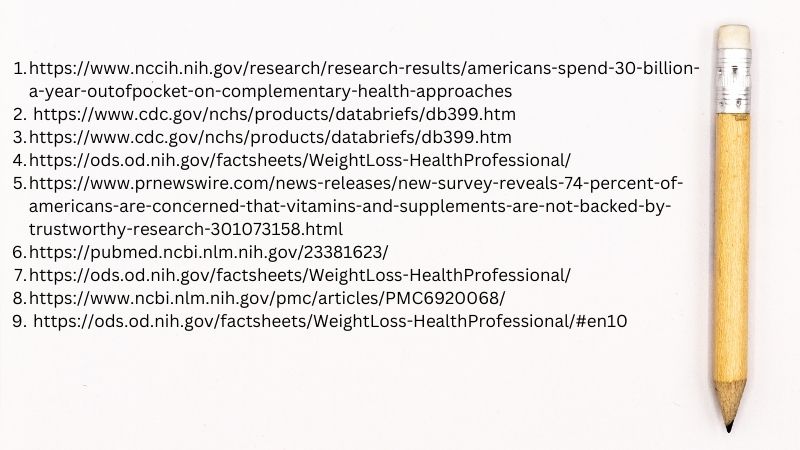It may come as a surprise for some people outside of the diet, nutrition, and supplement world to find out just how large the industry has become. There are literally millions of web pages, across thousands of sites, touting hundreds of supplements. All of that content has arisen because the Supplements Industry in the US alone has surpassed $163 Billion a year, and is expected to keep growing at 9$ for the next ten years.
We’ll break down some of the key insights gathered from hard data to generate a clearer picture of the supplement market–who’s taking supplements, what they’re taking them for, if they work, what ingredients are trending, and more.
Who’s Taking Supplements
Many people around the water cooler or break room wouldn’t readily admit to taking supplements, or complementary medicines. But the data indicate that the staggering sales in this market come from a small population of rich enthusiasts.
Supplement use increases with age:
In addition to these baseline data, we also have more nuanced data regarding multiple supplement takers. These are people presumably with higher confidence in supplements. It should be noted, however, that without qualitative statistical data to reinforce this presumption, it could be erroneous; it may also be that these demographics reflect attitudes of uncertainty, leading to more consumption, or doubt about efficacy, leading to double and triple purchases.
Header | Ages 20-39 | 40-59 | 60+ | Totals |
|---|---|---|---|---|
% Who take 0 Supplements Daily | 57.7% | 40.8% | 27.5% | 42.4% |
% Who take 1 Supplements Daily | 21.3% | 25.2% | 20.7% | 22.5% |
% Who take 2 Supplements Daily | 10.2% | 14.5% | 17.3% | 13.8% |
% Who take 3 Supplements Daily | 4.2% | 7.7% | 11.4% | 7.5% |
% Who take 4 Supplements Daily | 6.8% | 11.8% | 24.9% | 13.8% |
These data paint a clearer picture of the demographics’ use of supplements. Younger brackets trend overwhelmingly to one or no supplements, with that use bracket steadily increasing with age. One interesting bracket is the 3 supplement range, which for every demographic is the least represented, indicating a clear delineation between user types: those who are willing to take one or two versus those willing to take 4 our more; once a user crosses the 2/day threshold, their likelihood of stopping at 3 is low.
Attitudes Toward Supplements
After looking at the raw numbers for people taking supplements, we can take a look at the more qualitative data–specifically, what do people think about supplements?
These numbers indicate that while people have a lot of misgivings about their nutritional supplements, most of them don’t put in any of the time to research the products to assuage those worries. This indicates a strong potential market for supplement education, as well as a need for that market to court experts and demonstrate that expertise effectively.
Why People Take Supplements
People take Supplements for a variety of reasons, and understanding those reasons can illuminate a variety of market data and lead to a better understanding of trends.
Breakdowns by type of Supplement can help understand why people are taking supplements, outside of their reported survey answers.
- Multivitamin supplements are the largest share of purchases.
- Vitamin C, Calcium, Vitamin B12 and the blanket category “botanicals” round out the rest of the list.
- Vitamin D and Omega-3 supplements are second and third most common.
Header | % of Adults 20-39 Consuming | % of Adults 40-59 Consuming | % of Adults 60+ Consuming |
|---|---|---|---|
Multivitamin/Mineral | 24 | 29.8 | 39.4 |
Vitamin D | 6.7 | 17.4 | 36.9 |
Omega-3 Fatty Acid | 5.4 | 12.5 | 21.8 |
Botanicals | 5.1 | 8.3 | N/A |
Vitamin C | 5.2 | N/A | N/A |
Calcium | N/A | 7.7 | 19.2 |
Vitamin B12 | N/A | N/A | 12.4 |
These data indicate some revealing macro-trends based on demographic. It appears that Vitamin C and Calcium have an inverse relationship: younger people appear to be the only market for Vitamin C, while only people over 40 consume Calcium supplements.
Additionally, use of herbal supplements drops to insignificance in adults over 60, replaced by Vitamin B12 supplements, which is unseen in the younger demographics.
Meanwhile, multivitamin and Vitamin D use continues to increase as people age.
What Percentage of Supplements Work?
Despite the millions of people taking supplements, representing billions of dollars in sales, it remains unclear which of them actually work as advertised. Most supplements are not regulated by the FDA the way drugs are; in fact, the FDA can only recall products based on discernable health harms, or fraudulent claims made by the manufacturer. 237 supplements were recalled by the FDA between 2004 and 2012 [7] for various reasons.

In addition to fraud and safety, there is the issue of efficacy. The following data are collated from previous studies–they are not reflective of individual studies that this literature may have not been aware of.
Weight Loss Ingredients (According to data from the National Institutes of Health (NIH)):
Multivitamins (According to Johns Hopkins):
Omega-3 (NIH):

Testosterone Boosters (NIH):
Common Supplement Ingredients
Two popular supplements, for weight loss and for testosterone gains, are commonly seen as compounds of several ingredients. The following are statistical breakdowns of their common ingredients and efficacy.
Testosterone (NIH)[8]:
The most common ingredients in testosterone supplements (by percentage):
(I) increased testosterone, (D) decreased, (N) no change, (CD) Conflicting Data. These summaries are not exhaustive, and determinations regarding each ingredient should be made on an individual basis. Studies and data exist outside the scope of this limited review.
Weight Loss (NIH)[9]:
(N) No effect on weight loss, (M) modest, minimal, or probable effect, (I) insufficient data. These summaries are not exhaustive, and determinations regarding each ingredient should be made on an individual basis. Studies and data exist outside the scope of this limited review.
References


